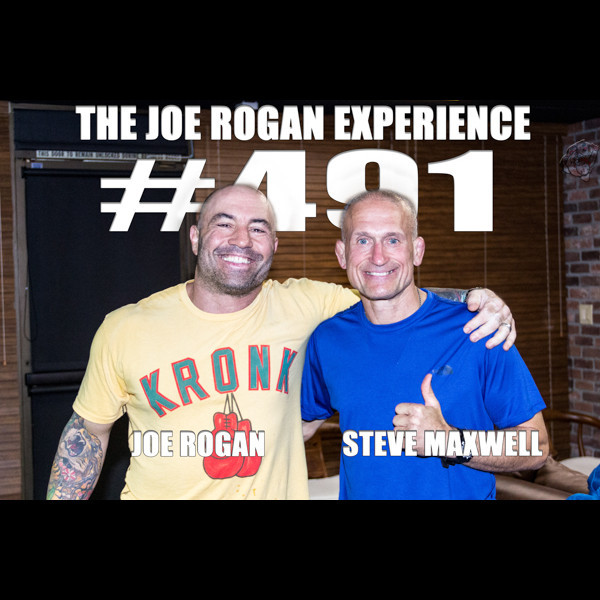4/28/2014
“`html
This podcast features Steve Maxwell, a renowned fitness coach, physical educator, and Brazilian Jiu-Jitsu instructor, as he shares his unique approach to training, health, and wellness. The conversation touches on a wide array of topics, exploring everything from the evolution of fitness philosophies to the importance of diet and lifestyle choices. Maxwell’s provocative perspectives on the benefits of natural living, his aversion to traditional medical practices, and his insights into the nature of human strength and resilience make for a compelling and thought-provoking discussion.
Here are some of the major topics covered in the podcast, along with a 4-point summary of each:
- The Evolution of Fitness Philosophies:
- Maxwell’s early exposure to fitness through wrestling and bodybuilding in the 1960s.
- The shift towards a more “natural” approach to fitness, focusing on health and performance over aesthetics.
- The impact of anabolic steroids on the bodybuilding world and its influence on training methods.
- The importance of returning to traditional fitness principles for optimal performance.
- The Importance of Diet and Digestion:
- Maxwell emphasizes the role of food combining and its benefits for digestion and overall health.
- His experiences with the Gracie diet and his research into the work of Herbert Sheldon and John Tilden.
- The impact of modern food production and processing on the quality and digestibility of food.
- The benefits of consuming natural, unprocessed foods and the importance of listening to your body’s signals.
- The Role of Genetics and Instinct in Martial Arts:
- Maxwell discusses the influence of genetics on physical abilities, particularly in grappling.
- His observations of his children’s natural inclination towards jujitsu techniques, suggesting a possible genetic component.
- The natural grappler instinct present in many mammals, from cats and lions to bears and Orcas.
- The significance of this innate grappling instinct in martial arts training.
- The Importance of Relaxation and Technique in Jiu-Jitsu:
- Maxwell’s personal journey in grappling, from his early reliance on strength and power to his gradual embrace of technique and relaxation.
- His transformative experience under the tutelage of Royce Gracie, who challenged him to shed his power-based approach.
- The Gracie philosophy of jujitsu as a system of teaching and self-defense, emphasizing playfulness and technique over brute force.
- The difference between traditional wrestling training and jujitsu training, highlighting the importance of constant drilling and technique refinement in the latter.
- The Power of the Subconscious Mind and Visualization:
- Maxwell’s belief in the subconscious mind’s ability to influence healing and recovery.
- His personal use of visualization and prayer to promote healing from injuries.
- The measurable impact of the placebo effect and the importance of belief systems in health outcomes.
- The interconnectedness of mind, body, and environment, and the potential for conscious intent to influence reality.
- The Dangers of Overtraining and Weight Cutting in Combat Sports:
- Maxwell’s perspective on the importance of appropriate training methods and the potential risks of overtraining.
- The importance of focusing on skill-specific training and the limitations of general conditioning exercises.
- The detrimental effects of weight cutting on athletes’ health and performance.
- The ethical implications of weight cutting and the arguments for athletes fighting at their natural weight.
- The Future of Athletics and Genetic Engineering:
- Maxwell’s concerns and fascination with the potential impact of genetic engineering on athletics.
- The possible creation of “superathletes” through genetic manipulation and the implications for the future of sports.
- The value of traditional athletic ideals, such as willpower, determination, and work ethic, in a world of potential genetic enhancements.
- The ongoing evolution of athletic training and the need for athletes to adapt to new technologies and advancements.
- The Importance of a Spartan Lifestyle and Systemic Under-Eating:
- Maxwell’s minimalist lifestyle and his emphasis on a spartan approach to diet and consumption.
- His inspiration from the Okinawa and Ikaria blue zones, where populations exhibit high levels of longevity.
- The Okinawa philosophy of “hara hachi bu” – eating until 80% full – and its potential benefits for health and longevity.
- The importance of minimizing stress, consuming natural foods, and embracing a simple, purposeful lifestyle for optimal well-being.
Here are 5 memorable quotes from the podcast:
- “It’s not the grips, it’s the hips.” – Maxwell highlights the importance of body control and leverage in jujitsu.
- “The more skill level an exercise takes, the higher the skill, the less care of a value to anything else.” – Maxwell emphasizes the importance of general exercises for overall athletic development.
- “Food addiction is very common, and it’s the toughest one to give up because you can never not eat.” – Maxwell articulates the unique challenges of food addiction.
- “It’s not what you can do in the gym, it’s what you can recover from in the gym.” – Maxwell underscores the importance of rest and recovery in athletic training.
- “Once you leave all that stuff [possessions], it’s self-freeing, man. It’s like real freedom.” – Maxwell shares his personal experience with the liberating aspects of minimalist living.
“`
